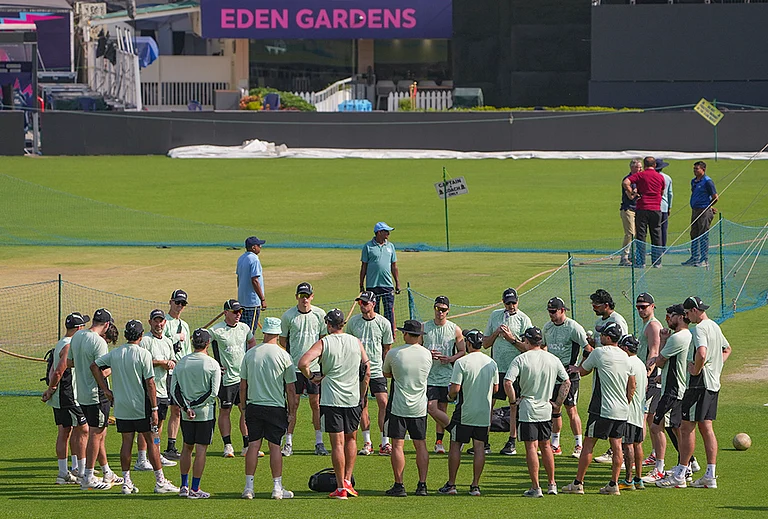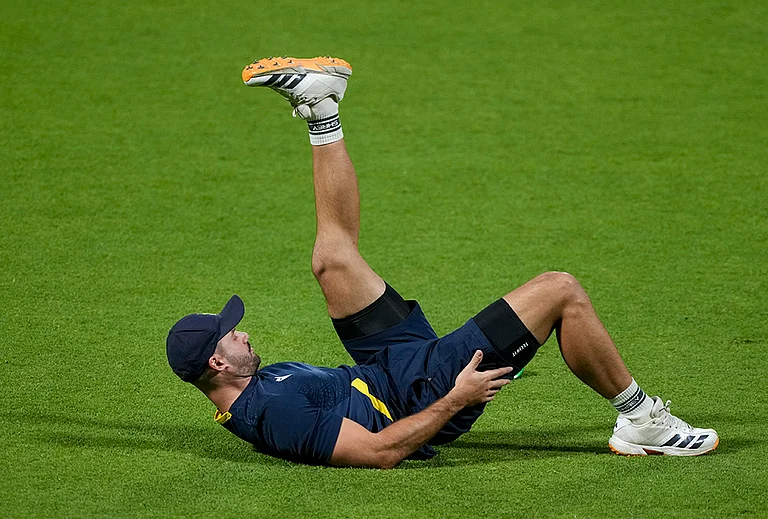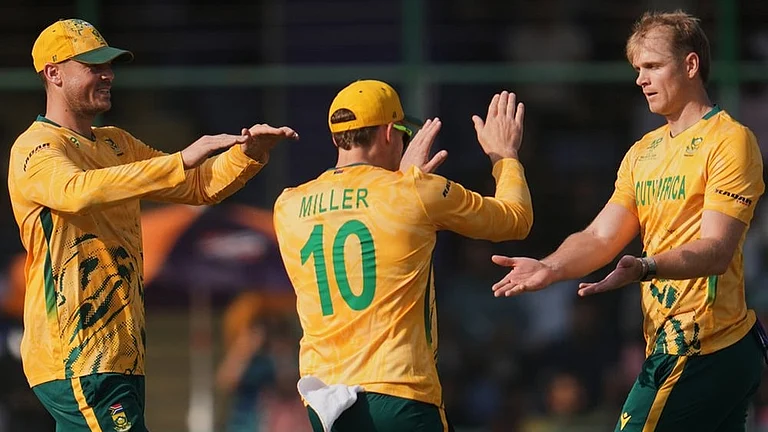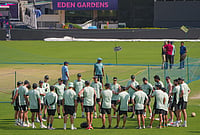I began translating accidentally in 2005, with the Bengali anti-establishment, experimental and maverick Little Magazine writer Subimal Misra. That was like being unwittingly thrown into the deep end of the pool. I would either drown, or learn to swim and survive. I had grown up in a Tamil-speaking household in Calcutta, and when I joined college and then university in the late 70s I entered the ‘Bengali’ world around me. I embraced public activism in 1984, joining the movement of the city’s squatters, protesting against evictions and demolitions and demanding resettlement. I got married the following year to Rajashi, a Bengali. Thus, I had been through two decades of ‘Bengalification’, and also an activist, anti-establishment and grassroots engagement in my city when I took up translation. That began a new journey, an engagement with the Bangla language itself, and a process of learning about the ‘mainstream’ and the ‘parallel’ in Bengali literature, the publishing world, and the literary establishment.
***
I never studied literature, but I had been a lifelong lover and avid reader of literature in and through English. I knew to read Bangla from elementary school; but now, in translating, it was my proficiency in understanding Bangla that was at play, imbibed through living in Bengal and participating in its social, cultural and political life. I was lucky to be introduced by a friend to V.K. Karthika, then with HarperCollins India, who agreed to publish my work.

After the publication of Misra’s The Golden Gandhi Statue from America in 2010, I wanted to continue, and took upon myself a long-term project of translating the short fiction of this unique and powerful writer, whose work I thought was important to carry to the wider world of literature. In this project, I was not merely a translator, but also a barefoot researcher and anthologist. A second collection of Misra’s stories, Wild Animals Prohibited, was published in 2015; by then, I had completed my manuscript for a third volume and also started working on the fourth. But now translation had become the means by which I dealt with life-threatening depression, following the death of my son Rituraj in 2013.
***
Since I was in the final phase of my Misra project, I started thinking about other writers to translate; I now saw myself as a curator and translator of ‘voices from the margins’. I established contact with Manoranjan Byapari, the celebrated Dalit writer, and in early 2016, he gave me his two-part novel, Chandal Jibon, to translate. I began on that soon after and completed it in two years. That was a new experience for me, of translation as unremitting labour. I think every serious translator ought to go through such a stage. And buoyed by this momentum, I then took up and completed the novel, The Sea, by my friend Swati Guha, and a four-part refugee memoir by Adhir Biswas.

In early 2019, a literary friend in Canada wrote to me about his fellow-Bangladeshi, the late writer, Shahidul Zahir, and urged me to translate him. So I began reading Zahir and fell under the spell of his magical prose from the very first sentence. Zahir was the first Bengali writer I read in Bangla for the sheer joy of reading, and I decided to translate his work, and also begin a personal engagement with Bangladesh—for it is the people of Bangladesh who are the custodians of the Bangla language. I made my first visit in 2019. That same year, I started translating a personal memoir by Ansaruddin, whom I had met at the People’s Literary Festival in Calcutta the previous year. Hearing him speak about his writing, to my ears it was like an ethnographic account of rural Muslim life and milieu in West Bengal. I was keen to translate him. I also translated some stories by Nabarun Bhattacharya for an academic volume on this iconic writer, and am hoping to do a volume of his stories.

I went to Dhaka again in February 2020 to work with Shahroza Nahrin, whom I had invited as co-translator, on translating Zahir’s novella, Life and Political Reality, arguably the most significant literary work about 1971. Thus began another new experience for me, of collaborative translation. It was a happy experience, and I realised that if one is translating an important text, and is committed to quality, then two are definitely better than one. Also, Bangla needs an army of translators, so by working with young translators perhaps they can be mentored towards becoming confident translators. And following the pandemic that began soon after, I began working online, and thus resumed the collaborative work.
***
In late 2020, I learnt the name of the acclaimed Bangladeshi writer, Shawkat Ali, and his novels, Narai (The Struggle), and Prodoshe Prakrito Jon (The Plebeians in the Twilight). The first is the story of a poor widow who becomes a part of the Tebhaga movement in East Pakistan in the early 1950s. The second novel is set a thousand years ago, and looks at the plight of the common folk at the cusp of the end of the Hindu Sena dynasty and the beginning of the Muslim Khilji dynasty. I decided to translate these novels and I received the consent for the same from the late author’s son very soon after. I have also translated short stories by two more Bangladeshi writers, Shahaduzzaman and Audity Falguni, and I intend to complete story collections by them.

Also, in late 2020, I learnt from the Bangladeshi artist Naeem Mohaiemen about the Bengali texts translation initiative by Columbia University Press, and began communicating with Prof Gayatri Spivak towards being involved in the same. My proposal to translate Kshiti Mohan Sen’s monograph, Bharote Hindu Musholmaner Jukto Sadhona (Hindu and Muslim in United Endeavour) has received Prof Spivak’s endorsement. In July 2021, I came across the name of Ismail Darbesh and his first novel, Talashnama, in a magazine article in Bangla by a friend. The novelist is an ostagar, or garment-maker, from a village in Howrah, West Bengal. The novel presents an intimate, inside-view of rural Muslim life. I have just begun translating that.
Following the announcement of the New India Foundation’s translation fellowship last August, I began thinking about and looking for a suitable text to propose. Finally, thanks to the inputs of Shafiqul Alam, a senior journalist in Bangladesh, I decided on the 1946 and 1947 diaries of Nirmal Kumar Bose, the famous anthropologist who was Mahatma Gandhi’s interpreter and personal secretary during that period. I submitted the proposal together with Amlan Biswas, who had already independently begun translating the 1947 diary, and we were selected. We will begin the work in July.
***
In the twenty-two months from July 2020 to May 2022, I completed and submitted the manuscripts of eleven works: the novels, The Runaway Boy and The Nemesis by Byapari; the novel The Sea, by Guha; the book, Memories of Arrival, by Adhir Biswas; Zahir’s novellas, Life and Political Reality and Abu Ibrahim’s Death; the fourth volume of Subimal Misra’s anti-stories; the novella, Pakistan, by Mashiul Alam, a friend from Bangladesh; a collection of ten short stories, and the novel, I See The Face, by Zahir; and the book, The Song of the Faraway Village, by Ansaruddin, which I translated together with Labani Jangi. And I also made two more visits to Bangladesh.

I would say that the first axiom of translation is that translation is impossible. But the second axiom is that translation is necessary. I never learnt translation, I just started doing it. I try to enter the mind and being of the writer through his/her words. I smirk and guffaw, fume and
sob with the text. There are many issues and challenges that come up, and I just address them as I see fit at that point. Translation can be very difficult. Motivation, and patient, persistent labour is needed. And I keep learning and growing.

Like some people are driven to write, some people are driven to translate. Out of an urge to share something of literary value. I have been fortunate to find publishers for my work. Two of my Misra books, Wild Animals Prohibited and This Could Have Become Ramayan Chamar’s Tale: Two Anti-Novels, were published in the US and were received well. A collection of Misra’s stories translated by me was also published in French. Misra had dedicated the collection to Jean-Luc Godard—“who taught me language”—and the publisher sent the French translation to Godard himself, who acknowledged the same. I had set out to ferry the name and work of Misra to the world of literature, and I have been somewhat successful in that endeavour. That is a matter of some satisfaction.
(This appeared in the print edition as "The Accidental Translator")
(Views expressed are personal)
V Ramaswamy is a Literary and non-fiction translator



















